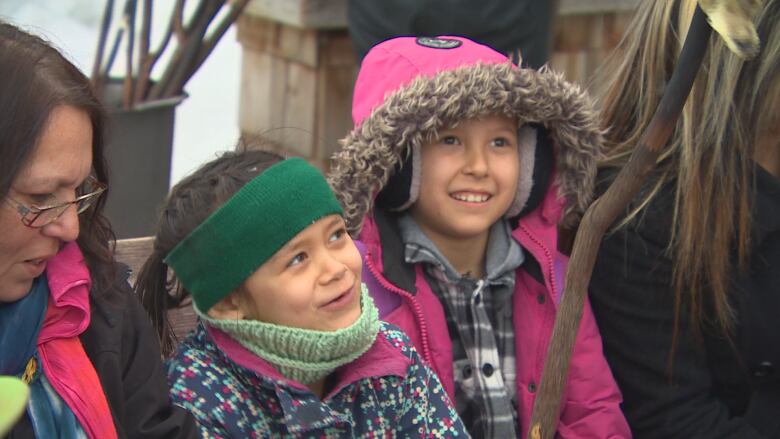Across-the-board cuts to community grants in Winnipeg budget will have 'significant impact': non-profits
City's 2020 budget, announced Friday, includes 10% cut to nearly all annual grants

Some Winnipeg non-profitsfacing cuts in the city's budget say the changes are short-sighted and at odds with the city's plan to tackle addictions.
The city's 2020 spending planoutlines cuts of 10 per cent to almost all annual grants, including dozens of groups ranging from athletics to art and community drop-ins.
"It's a short-sighted and regrettable decision that will really impact, especially, inner-city communities," said Dorota Blumczyska, executive director of the Immigrant and Refugee Community Organization of Manitoba.
The newcomer organization lost more than $7,000, which Blumczyska said would have been used to feed children snacks and help cover transportation costs.
The timing of the budget announcementless than a month before the beginning of a new fiscal year on April 1 for many non-profitswill leave many scrambling to try to find new funding or change their budgets,Blumczyskasaid.
"It is impossible to actually make it up in this short of a timeframe," she said. "There will be a felt and a significant impact on our newcomer children and youth."
Other impacted groups include the Winnipeg Arts Council, which is set to lose more than $464,000 in 2020, dropping to $4.18 million next year compared to $4.65 million in 2019. A spokesperson for the council said the group couldn't provide a statement Friday.
Funding to Rossbrook House, an inner-city youth drop-in, is set to drop by more than $25,000 to $230,705 in 2020, and Art City will see a reduction of nearly $15,000.
The cuts are in conflict with the long-awaited recommendations of the city's illicit drugs task force, said Rick Lees, executive director of Main Street Project. Lees himself participated in the task force, which recommended solutions includingmore treatmentspaces, supportive housing and employment opportunities for thosein the throes of addiction.
Main Street Project will lose almost $10,000 in funding from the city in 2020, according to the city's budget presented on Friday. Lees said that money comes out of the centre's Mainstay program, which offers supported,transitional housing for residents aiming to improve their lives.
"If ever we need more of that type of housing and facility, it's today," Lees said. He expects to make the case to city council later this month to preserve Main Street Project's 2019 funding levels.
"Cutting in community dollarsseems to be counterintuitive, if we really want to solve some of the very expensive things that are happening in our community right now."
$8-million reduction in grants
The cuts don't impact organizations that are part of multi-year deals, and some organizations that were deemed to provide services on the city's behalf were spared, Winnipeg Mayor Brian Bowman said Friday.
The total value of the change in grants and payments from 2019 to 2020 is more than $8 million, from $77 million to $69 million. Cuts toannual grants account for about $1 million of that figure, which alsoincludes big-ticketcapital grants such as a nearly $1-million drop in the city's Community Incentive Grant Program to$1 million in 2020.
The $8-millionfigure also reflects the fact the city will save more than $4.7million in 2020 compared to 2019, after a big-ticket capital grant was paid to the Assiniboine Park Conservancy's capital development plan.
The city had to make "hard decisions" in the budget, Bowman said. He pointed to other spending in the 2020 budget, like a commitment to spend $250,000 annually for the next four years on a 24/7 safe spaces program and funding for police.
"In terms of the overall illicit drug strategy, we have our role to play. But other levels of governmenthave their role to play as well," he said.
"Today we're doing our part to provide some additional focus, while also trying to keep the lights on at some really incredible facilities in our community."
'We're going backwards'
Cindy Tugwell, executive director of Heritage Winnipeg, said she's disappointed but not surprised to see the cuts. Her organization saw a drop of just under $3,500 to $31,275 in 2020.
She said the cutwill put her organization ina critical position, and mean they'll have to spend even more time fundraising and less time working in the community. Funding non-profits is better value for taxpayers, she said, because they have experience andmobilize volunteers where the city would be paying for services.
"If you're trying to be prudent, you want to support community, non-profit organizations to do the work that theyalready have the expertise to do, and to support them," she said. "It's really a shame that we're going backwards."
Main Street Project's Lees said he's sympathetic to the budget process and understands the plight of trying to do more with less.
He said Winnipeggers need to tell their politicians if they're willing to accept things like property tax increases in order to fund solutions to issues like homelessness or addiction.
With a funding cut, he said Main Street Project will have to rely more on the charity of the public.
"In a way, it gets transferred back to the citizens of Winnipeg, because those are the folks that, through donations and gifts to Main Street Project, always make up the difference."
With files from Bartley Kives and Sean Kavanagh












_(720p).jpg)


 OFFICIAL HD MUSIC VIDEO.jpg)
.jpg)



























































































